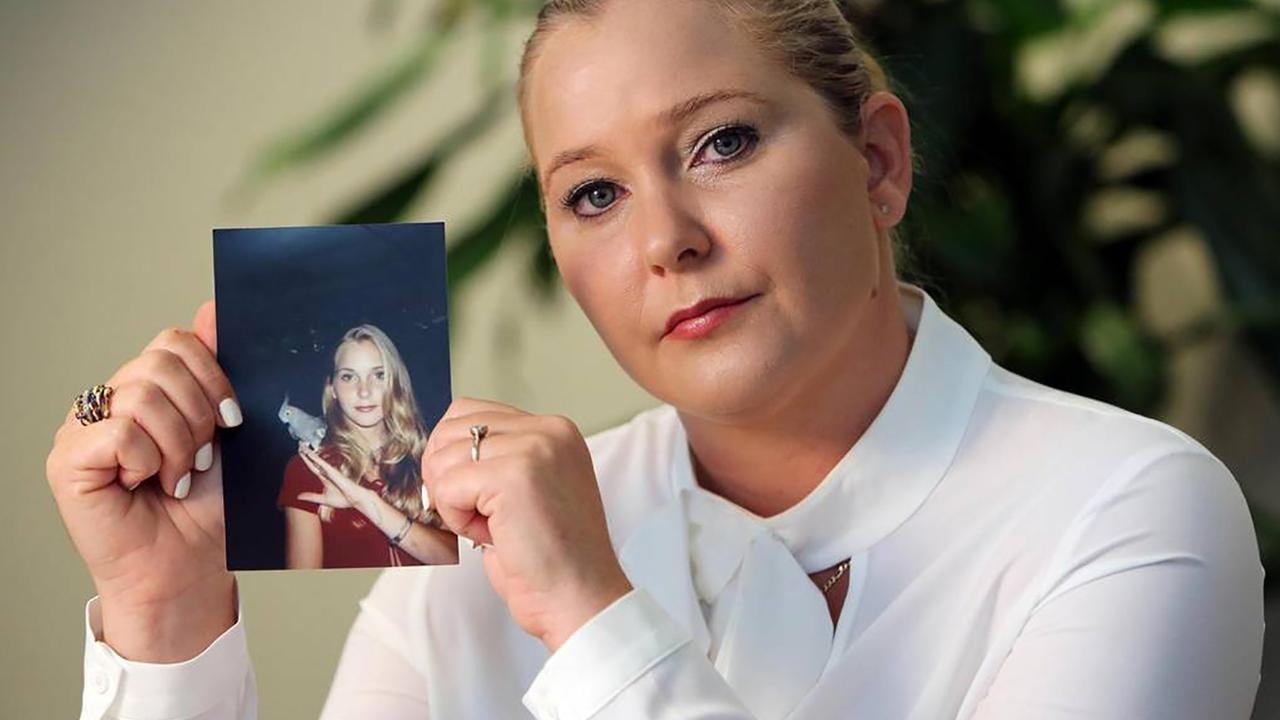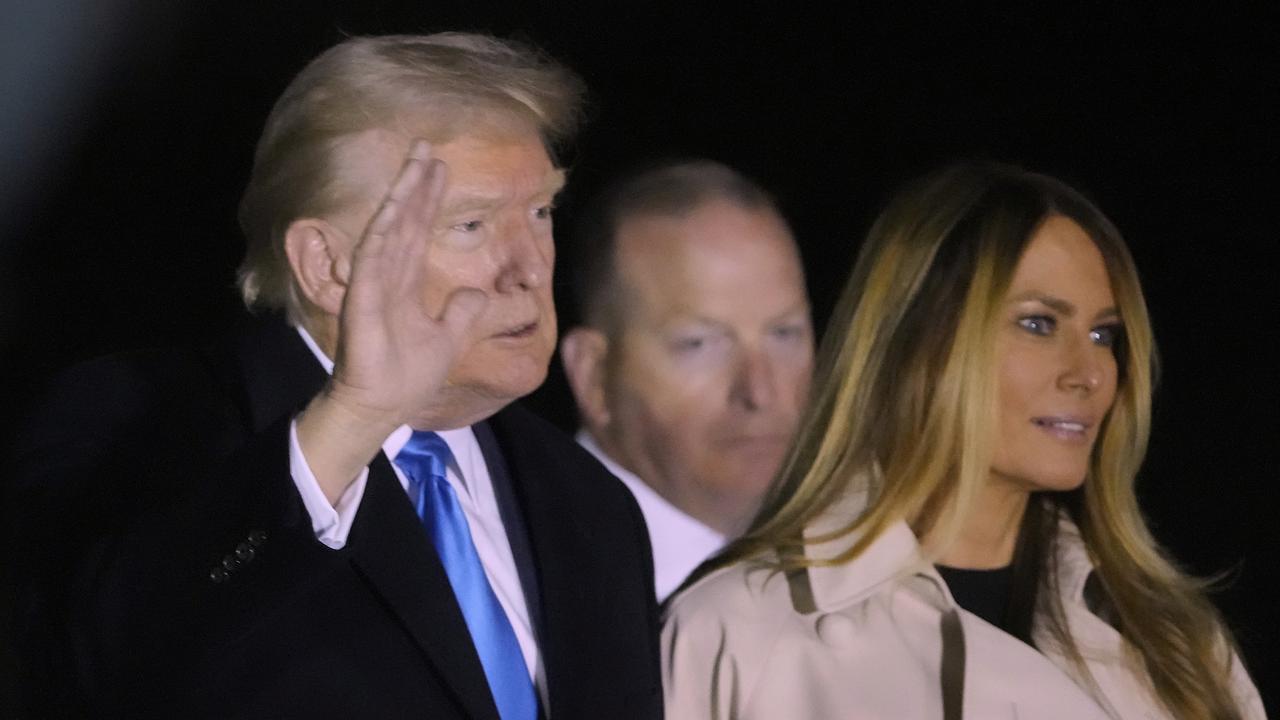What Trump 2.0 means for world leaders
World diplomacy could change drastically depending on the outcome of the US Presidential election. See who might come up trumps, if Donald Trump returns to the White House.
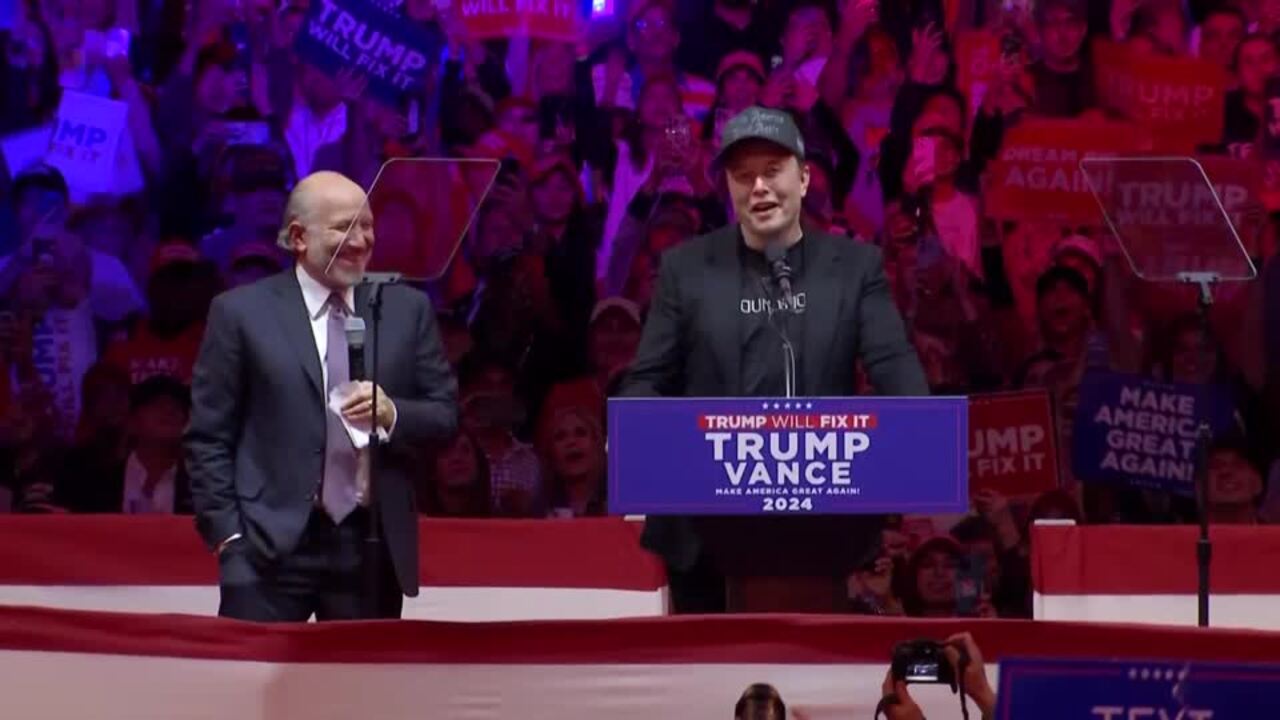
United States
Don't miss out on the headlines from United States. Followed categories will be added to My News.
The wry smile Vladimir Putin flashed as he endorsed Kamala Harris for president sowed even more confusion into an already tumultuous election. Is a Donald Trump 2.0 presidency a good or bad outcome for Russia?
It’s a question being asked by world leaders across the east and west; from China’s Xi Jinping and North Korea’s Kim Jong-un to the UK’s Keir Starmer and Australia’s Anthony Albanese.
While the common, but disputed, narrative suggests Russia has supported Mr Trump since his first presidential campaign in 2016, Mr Putin himself – if he’s not simply trolling – says otherwise.
“Trump introduced so many restrictions and sanctions against Russia, like no other president had ever introduced before him. And if Ms Harris is doing well, perhaps she will refrain from doing anything like that,” he added.
With the understanding that not even Mr Trump himself may know exactly what he’ll do before tweeting it, here’s how world leaders might contend with the increasingly likely prospect of a second Trump White House.
ANTHONY ALBANESE
Prime Minister Anthony Albanese has two major flashpoints to contend with if Mr Trump returns to the White House: AUKUS, and “nasty” Kevin Rudd.
Mr Trump said Australia’s ambassador to the US wasn’t the “brightest bulb” but that he “won’t be there long” if past antagonistic behaviour continues.
It comes after Mr Rudd spent years trolling Mr Trump as a “traitor to the West” who “drags America and democracy through the mud”, “thrives on fomenting” division, and “abuses Christianity”.
While the Albanese government has indicated that Mr Rudd would remain ambassador regardless of who wins the election, Mr Trump has a history of pushing out his critics.
The UK’s Sir Kim Darroch resigned in 2019 after Mr Trump said the White House would no longer work with the ambassador over leaked cables describing the president as “inept”, “insecure”, and “incompetent”.
If Mr Trump can forgive Mr Rudd’s transgressions, Canberra will still have to brace turbulence on the issues of trade, China, and AUKUS.
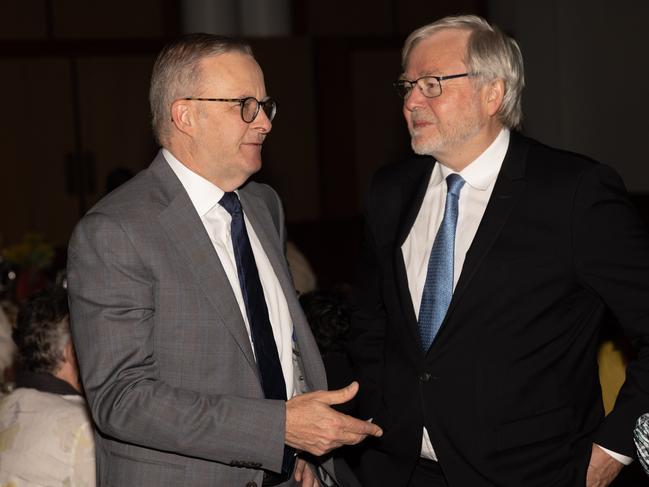
The Lowy Institute’s Executive Director Michael Fullilove said Trump 2.0 may be less restrained than Trump 1.0 and Australia should engage pragmatically.
“It is hard to think of two leaders who are more different from each other -- in terms of origins, personalities, and values -- than Albanese and Trump,” he said, adding that Australia would need to work closely with the US military and Congress.
Mr Fullilove added that whoever is in office if Trump takes the White House in 2025, whether Mr Albanese or Peter Dutton, they may find “the prospect of fraternising with Trump distasteful”.
“But if this situation comes to pass, they will need to grimace and bear it. The alternatives -- to turn away from the United States or hug Trump tight -- are worse.”
VLADIMIR PUTIN AND VOLODYMYR ZELENSKYY
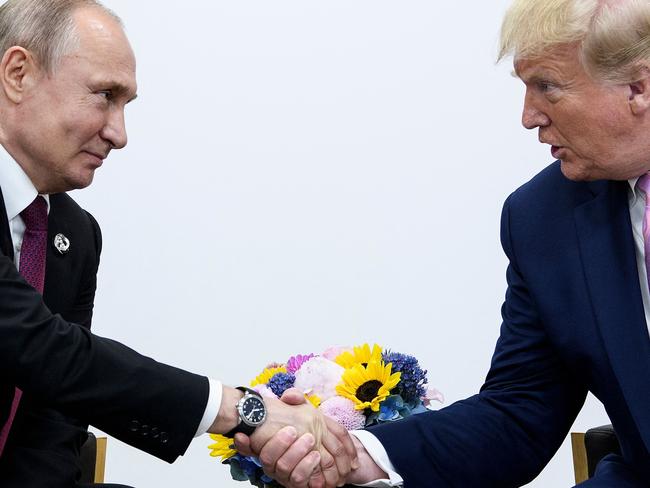
For better or worse, the fates of Vladimir Putin and Volodymyr Zelenskyy are inexorably tied to the outcome of the US election.
There is no flashpoint of greater consequence than the Russia-Ukraine war and the impact a transition from a Biden to Trump administration would have on both the battlefield and negotiating table.
For Mr Trump’s part, he says the war would be over immediately. No, before he’s even sworn into office. Details are light.
“I’ll have a deal made, guaranteed,” Mr Trump said. “But I can’t give you those plans, because if I give you those plans, I’m not going to be able to use them, they’ll be very unsuccessful. You know, part of it’s surprise, right?”
Mr Putin has indicated he’s open to negotiations as long as they “reflect the reality on the ground”. To decode: Russia gets to keep what it occupies.
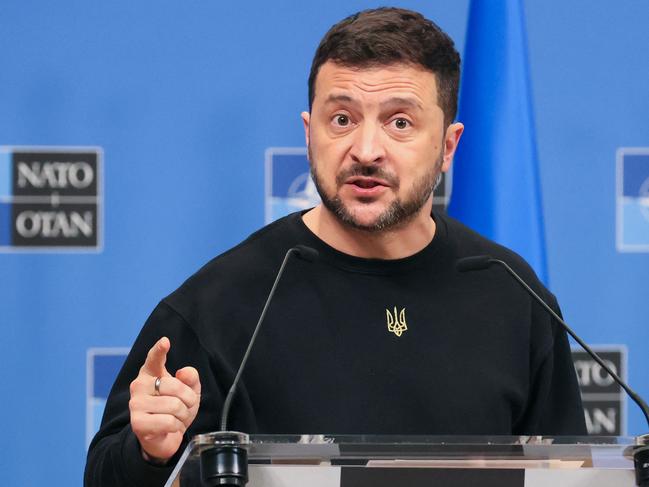
In that case, a rapid peace deal if Mr Trump wins the presidency is not in Mr Zelenskyy’s best interests.
But retired Major General Mick Ryan, the Lowy Institute’s senior fellow for military studies, said a quick solution will prove elusive and that lack of deal-making success may ultimately help Ukraine.
“Should Trump not be able to achieve a quick solution in the Ukraine war, he could well turn on Putin and increase US support to Ukraine,” Mr Ryan said.
“Even if a Trump administration attempts to force them into an unsustainable armistice, Ukraine would likely choose to fight on without US support.”
XI JINPING
Like Mr Putin, Chairman Xi Jinping’s preference for who wins the White House is obscured.
A Chinese-linked disinformation network is in the midst of a “Spamouflage” campaign to push divisive political messages on American voters.
The AI-generated bots posing as US citizens use social media accounts to push false or misleading information aimed at influencing the election discourse, according to analysis company Graphika.
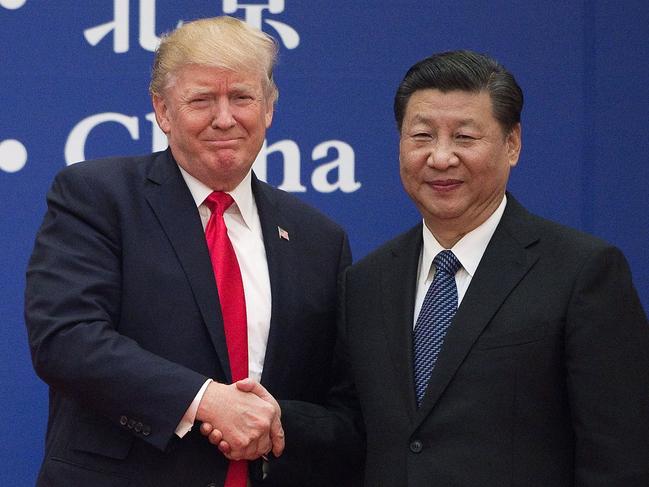
Jack Stubbs, who managed the Graphika team that uncovered one of the world’s largest covert influence operations, said China’s “Spamouflage” campaign is becoming “more aggressive” as the November 5 election nears.
While the misinformation takes aim at both Donald Trump and Kamala Harris, the common denominator is the delegitimisation of the US electoral process.
It’s part of the Communist Party’s long-term goal of eroding support for democracy, and influencing American policy toward Taiwan.
That strategy remains consistent with whoever ends up in the White House.
If it’s Mr Trump, however, Chairman Xi faces the added wrinkle of the Covid-19 pandemic, which the former president blames for his 2020 election loss. Responsibility for the “China virus” is placed squarely on Beijing, and a Trump grudge may prove a bigger obstacle than the vacuum created by the chaos of a 2.0 administration is worth.
Notably, the main focus Mr Trump’s of wrath against Beijing will be trade tariffs. He’s already promised a 60 per cent tariff, or higher, on all Chinese imports to the United States, and dismissed fears it would reignite the trade war of his first term.
“It’s not a trade war. I did great with China with everything,” Mr Trump said.
BENJAMIN NETANYAHU
Behind Russia and China, the third largest state actor attempting to influence the US election through covert online operations is Iran.
There is no more important issue for Iran than Israel. And by “issue”, Iran means the eradication of the Jews from the Middle East.
To that end, it employs whichever proxy best serves that purpose, whether Hezbollah in Lebanon or the Houthis in Yemen.
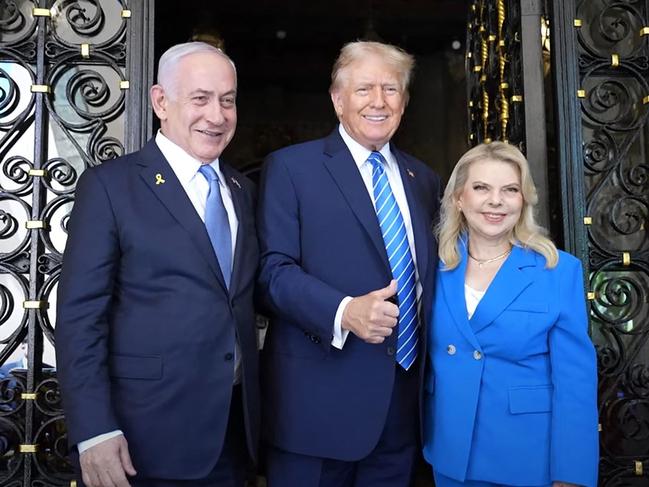
For Israeli Prime Minister Benjamin Netanyahu, it is Hamas in Gaza and the terror group’s genocidal goal of zero Jews living anywhere between the Jordan River and the Mediterranean Sea.
Unlike Iran or China, Mr Netanyahu can deploy his influence campaign in person.
He travelled to Mar-a-Lago in July to embrace Mr Trump like an old friend, despite their last meeting ending in a long-running feud.
It was the first time the pair came face-to-face since Mr Trump left the White House, suggesting Mr Netanyahu is hedging Israel’s future on a Trump 2.0.
Mr Trump, however, is at least “sufficiently self-aware” not to claim he can resolve the Israeli-Palestinian conflict, wrote Lydia Khalil in the essay “Trump would put personality over policy in the Middle East”.
Ms Khalil said Mr Trump’s policy in the Middle East would be swayed by impulses and personal interests.
That boils down to: “Look strong, but don’t do too much”.
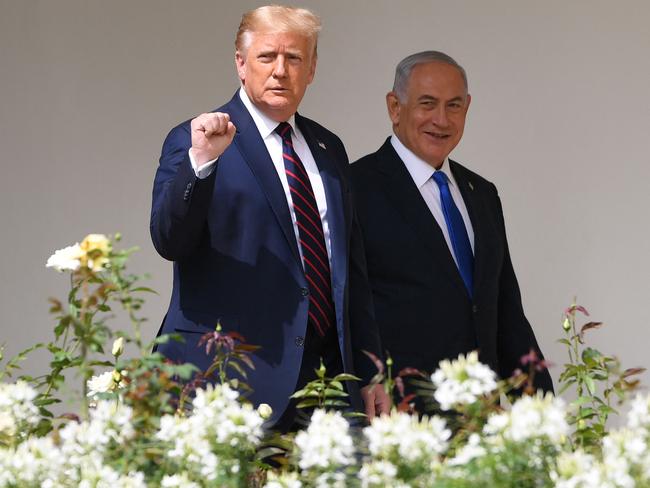
“While Trump has been a strong supporter of Israel in the past, he has stated repeatedly that the war in Gaza must end quickly and has more recently been lukewarm at best towards Israel’s Prime Minister Benjamin Netanyahu,” she said.
“Nevertheless, Trump will have no sympathy towards the Palestinian movement and is unlikely to place further pressure on Israel regarding the prosecution of this war.”
KIM JONG-UN
Of all Mr Trump’s frenemies, it’s his relationship with “little rocket man” Kim Jong-un that has the most unpredictable potential of going nuclear.
“I got along with Kim Jong-un of North Korea. Remember I walked over [ …] the first person to ever walk over from this country,” Mr Trump said at a Pennsylvania campaign rally of their historic meeting.
“We also looked at his nuclear capability,” he continued. “It’s very substantial [ …] You know, getting along is a good thing. It’s not a bad thing.”
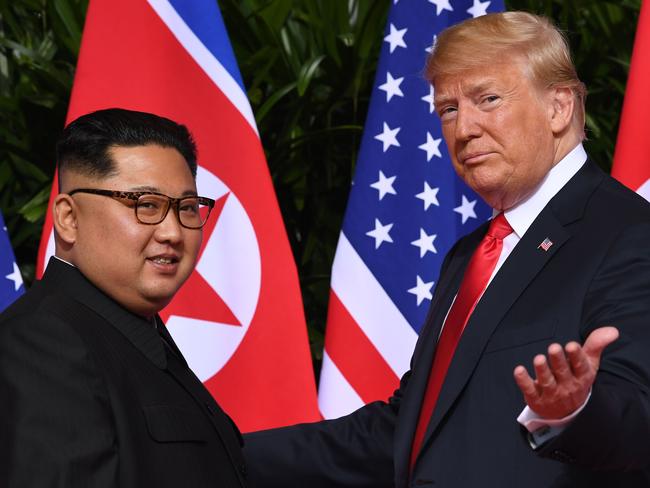
Despite years of barbs between the two, Mr Trump’s return to the White House would be “a once-in-a-thousand-year opportunity” for North Korea
Former diplomat Ri Il Kyu, who defected last November, said Mr Kim believes he can negotiate with Mr Trump over his nuclear weapons.
Despite an official statement from Pyongyang claiming it “did not care” who wins the presidency, Mr Ri told the BBC that North Korea wants Mr Trump in the White House so they can negotiate in bad faith to freeze its nuclear program in exchange for the lifting of sanctions.
“[It] would be a ploy, 100 per cent deception,” Mr Ri said.
“North Korea understands that the only path to its survival, the only way to eliminate the threat of invasion and develop its economy, is to normalise relations with the United States.”
Mr Trump indicated in his new book Save America, that he would resume the diplomacy of personality if he wins a second term, saying Chairman Kim has “an opportunity like no other”.
“To be remembered as the leader who ushered in a glorious new era of security and prosperity for his people,” Mr Trump wrote.
“Our unprecedented meeting, the first between an American president and leader of North Korea, proves that real change is indeed possible.”
EMMANUEL MACRON AND OLAF SCHOLZ
With frenemies like North Korea, who needs to make enemies of friends like France and Germany?
Seemingly Mr Trump, whose rhetoric against allies is often more bombastic than the conciliatory tone he strikes with the likes of Mr Kim.
In Europe, Mr Trump’s threats to withdraw from NATO continue to irk French President Emmanuel Macron and German Chancellor Olaf Scholz.
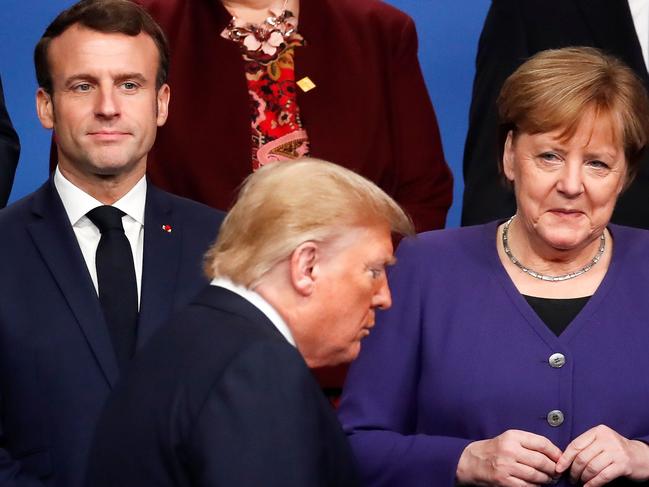
Mr Scholz took the bait earlier this year calling out Mr Trump as “irresponsible and dangerous” after the former president told a campaign rally he would “encourage” Russia to invade NATO allies “delinquent” on their commitment to spend at least two per cent GDP on defence.
Mr Scholz seemingly didn’t learn lessons from his predecessor Angela Merkel, who repeatedly picked fights with Mr Trump and for her efforts saw the withdrawal of 10,000 US troops from Germany in 2020.
Mr Macron, however, has been around long enough to recognise the US as an “important ally” despite the slings and arrows of its once and perhaps future leader.
“I’ve always had the same philosophy, I take the leaders that people give me,” Mr Macron said after Mr Trump locked up the Republican nomination.
Despite the histrionics about the US leaving the 75-year-old NATO alliance, a Trump 2.0 White House would see the US remain as a key, if downsized, player on the continent.
Mr Trump’s biggest gripe has been America’s subsidising of defence in Europe, which he wants to be led by France, Germany and the UK.
The demands turned out to be prescient, as the former NATO Secretary General Jens Stoltenberg said in 2019 that Mr Trump’s tough approach paid off and ultimately strengthened the alliance.
“We agreed to do more to step up — and now we see the results. By the end of next year, NATO allies will add $A150 billion extra toward defence,” he said.
KEIR STARMER
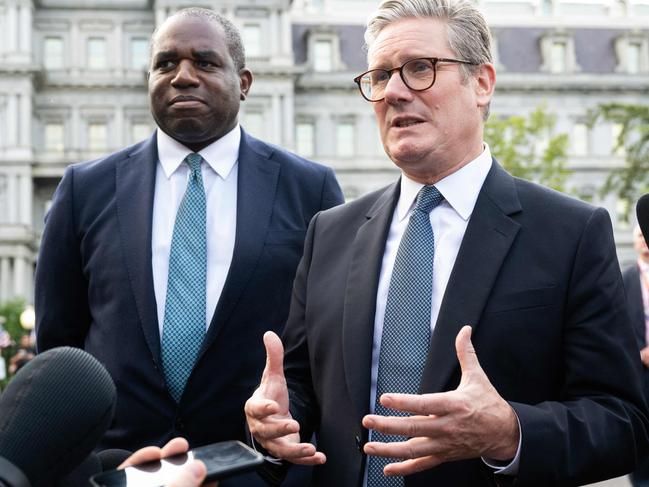
While the UK is also a top player in NATO, the English Channel makes the spectre of a Russian invasion less of an immediate threat than the rest of Europe.
New Prime Minister Keir Starmer will have his hands full navigating the treacherous waters of trade across the Atlantic, and the past comments by his foreign secretary David Lammy; who called Mr Trump a “racist KKK” and “woman-hating, neo-Nazi-sympathising sociopath”.
Ever since the UK left the European Union’s single market, a trade deal with the US has been seen as the biggest prize for a post-Brexit Britain.
But the election of Mr Starmer to No. 10 places even more hurdles to a deal that none of the Tory’s past three prime ministers were able to strike.
If the “special relationship” with the US frays over the lack of a deal, in addition to the impact of a potential Trump trade war on the UK economy, Mr Starmer could be compelled to bring Britain back into the embrace of the European Union.
While Mr Starmer has sought to reset relations with Europe, he has been reluctant to pick away at the scab of Brexit too much for fear of the divisive wounds it could reopen. Trump 2.0 could change that.
More Coverage
Originally published as What Trump 2.0 means for world leaders




